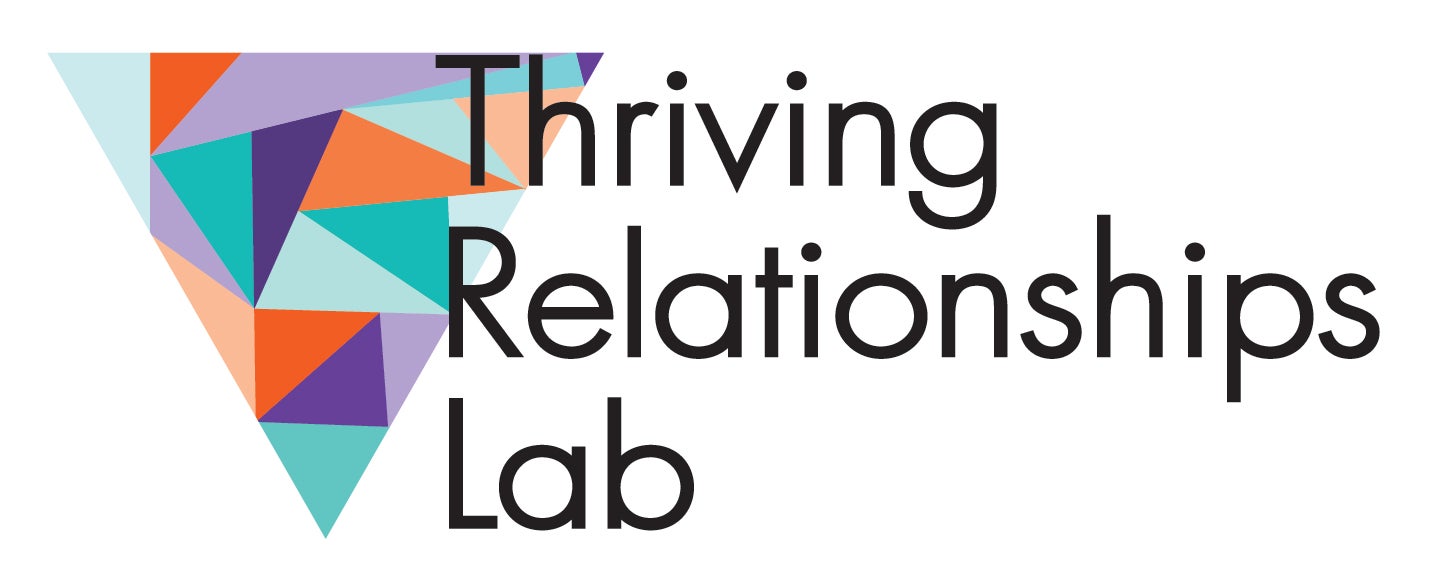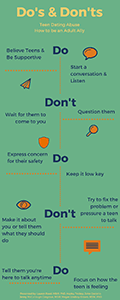Dr. Lauren Reed is the faculty advisor for the Thriving Relationships Lab, an interdisciplinary social-justice minded team of faculty, students, and public servants dedicated to conducting community-based research on teen dating and sexual abuse prevention.
One area of research is on "digital dating abuse," or the use of social media and mobile phones to harass, pressure, monitor, coerce, or threaten a dating partner. Dr. Reed led a team that created on of the first survey measures of digital dating abuse -- one that went beyond the typical "checklist" of behaviors and how frequently teens were experiencing them, to measuring the motivation and impact of each type of behavior. In her work, she argues that unless we look at context and consequences of dating and sexual abuse, we are going to miss a lot of important gender dynamics and how these experiences differentially impact girls, youth of color, and sexual minority youth. Dr. Reed also uses qualitative and youth participatory methods to study digital dating abuse and teen dating abuse prevention.
Listen to Dr. Reed discuss her work on the Social Work Podcast and on local Phoenix news radio KTAR during a segment for February 2020 Teen Dating Violence Awareness Month.
Some of the key findings from this work on digital dating abuse (DDA) include the following:
- Digital dating abuse is a common form of psychological abuse that teens experience.
- Latinx youth who have experienced DDA are also likely to have fewer positive conflict resolution relationship skills.
- Teens who experience DDA are also likely to be experiencing in-person teen dating abuse.
- Although teens of all genders experience DDA, girls suffer more emotionally from the same experiences.
- Anxious teens may get caught in a "cycle of anxiety" on social media because so much information about our dating partners is now available.
- When asked to write about their "worst" DDA experience, teens write about experiences of insults and name-calling online, violations of privacy, online rumors, online break-ups, and pressure for sex or sexual photos.
- Teens are more likely to tell their peers than trusted adults or parents about DDA experiences.
- Most teens who are sexting are sexting their dating partners, and most of the time this is a fun, consensual experience. However, girls are twice as likely as boys to experience pressure and coercion to sext. Girls have negative emotional responses to sexting requests and unwanted sexts from dating partners, while boys respond positively to these same sexting behaviors.
Do's and Don'ts
- Do: Believe teens and be supportive
- Do: Start a conversation and listen
- Don't: Wait for them to come to you
- Don't: Question them
- Do: Express concern for their safety
- Do: Keep it low key
- Don't: Make it about you or tell them what they should do
- Don't: Try to fix the problem or pressure a teen to talk
- Do: Tell them you are here to talk any time
- Do: Focus on how the teen is feeling
Presented by: Lauren Reed, MSW, PhD; Hayley Trickey; John Costello; Jenny McCullough Cosgrove, MSW; Megan Lindsay-Brown, MSW, PhD
Dr. Reed and her team have presented community training for educators and service providers to learn about digital dating abuse and how to be adult allies, and have created resource materials [hyperlink to Resources tab on our website] for both teens and adults on the topic of teen dating abuse. They are collaborating with the ASU Sexual and Relationship Violence Prevention program to conduct research with ASU students that will inform their healthy relationships programming. Dr. Reed and her team also collaborate with local teens at Maryvale High school to work on social issues they care about in their community, including issues of toxic masculinity and violence.
Read more about her work in these selected publications:
https://www.ncbi.nlm.nih.gov/pubmed/30261802
https://www.ncbi.nlm.nih.gov/pubmed/28582653
https://asu.pure.elsevier.com/en/publications/name-calling-jealousy-and-break-ups-teen-girls-and-boys-worst-exp
https://asu.pure.elsevier.com/en/publications/how-do-adolescents-experience-sexting-in-dating-relationships-mot
https://www.sciencedirect.com/science/article/pii/S0747563215302831
For more information on Dr. Reed and her research team- the Thriving Relationships Lab, please visit their website at www.thrivingrelationshipslab.com. The website has information about current projects, recent relevant publications, free local and national resources, and information on our team members. You can also contact Dr. Reed at Lauren.A.Reed@asu.edu.
https://www.thrivingrelationshipslab.com/



